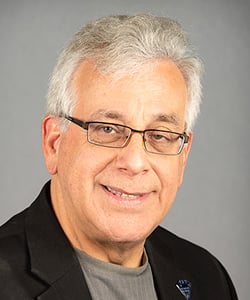Scientific Planning Committee
Ariana Nelson, MD; University of California, Irvine, Irvine, CA
Sudheer Potru, DO, FASA FASAM; Emory University, Atlanta, GA
Mercy Udoji, MD, CMQ, FASA; Emory University, Atlanta, GA

Antje M. Barreveld, MD, is an associate professor of anesthesiology at Tufts University School of Medicine in Boston, MA. She serves as medical director of pain management services, co-founder and director of education and outreach for substance use services, and anesthesiologist at Newton-Wellesley Hospital in Newton, MA. She graduated from University of California San Francisco School of Medicine and completed her residency in anesthesiology and fellowship in pain medicine at Brigham and Women's Hospital. Dr. Barreveld’s expertise is in managing chronic pelvic pain, interdisciplinary spine care, and safe practices in co-managing pain and addiction. [top]

Kimberlee Bayless, DNP, FNP-BC, APRN, is a nurse practitioner and director of the transitional pain service department at George E. Wahlen Department of Veterans Affairs Medical Center in Salt Lake City, UT. Dr. Bayless has practiced pain medicine for multiple years in the private practice setting and has been a nurse for over 22 years in the private, hospital, and academic setting.
Dr. Bayless is a member of the office of nursing service pain management field advisory committee. She is vice-chair of the Nurse Practitioner, Physician Assistant, and Clinical Nurse Special Interest Group for ASRA Pain Medicine. In 2019, Dr. Bayless received Secretary’s Ward Excellence in Nursing Award for the George E. Wahlen Department of Veterans Affairs Medical Center. She also received the 2022 Utah State Award for Excellence from the American Association of Nurse Practitioners. [top]

Alyssa Burgart, MD, MA, FAAP, is a clinical associate professor of anesthesiology, perioperative, and pain medicine at Stanford University. She is a board-certified pediatric anesthesiologist and bioethicist, specializing in pediatric anesthesia and pediatric abdominal transplant anesthesia. Dr. Burgart is committed to a trauma-informed anesthesiology practice, working with each patient to create an overall positive experience. She champions children with unique behavioral and intellectual needs, such as sensory integration differences.
Dr. Burgart has a joint appointment in the Stanford Center for Biomedical Ethics, serves as the Co-Chair of the Stanford Children’s Health Ethics Committee, and as a member of the Stanford Hospital Ethics Committee. She provides ethics consultation services for people of all ages. Her ethics interests include pediatric ethics, organ transplantation, communication skills, disability rights, reproductive justice, and adolescent decision-making. [top]

Mark C. Bicket, MD, PhD, is an assistant professor in the department of anesthesiology at the University of Michigan School of Medicine. He has a joint appointment at the University of Michigan School of Public Health. He completed his anesthesiology residency at the Johns Hopkins Hospital, where he served as chief resident, and completed his pain medicine fellowship training at Massachusetts General Hospital.
Dr. Bicket has research interests in improving the care for patients in the perioperative setting and with acute or chronic pain. He serves as co-director of the Opioid Prescribing Engagement Network, a group dedicated to advancing evidence, resources, and engagement to address the opioid epidemic. In the department of anesthesiology, he serves as director for opioid research. A clinician-scientist and practicing physician anesthesiologist, his work has been supported by NIH, SAMHSA, the Foundation for Anesthesia Education and Research, and the Patient-Centered Outcomes Research Institute. [top]

Heejung Choi, MD, is an assistant professor of anesthesiology and program director of the the multidisciplinary pain medicine fellowship at Northwestern University. She completed undergraduate training at Cornell University and medical training at Geisel School of Medicine at Dartmouth. Dr. Choi completed her anesthesiology residency and multidisciplinary pain medicine fellowship at Northwestern McGaw Medical Center Feinberg School of Medicine. She has multiple interests including interventional pain medicine, and safe opioid prescribing, but a special interest in diversity, equity, and inclusion. She has been published in JAMA, Neuromodulation, and Regional Anesthesia and Pain Medicine. [top]

Hance Clarke, MD, PhD, is the director of pain services and the pain research unit at Toronto General Hospital in Canada. He is the knowledge translation chair for the University of Toronto Centre for the Study of Pain and an associate professor in the department of anesthesiology and pain medicine at the University of Toronto. Dr. Clarke has authored more than 150 peer-reviewed publications and has been invited to speak on pain control, cannabis, and the opioid crisis to the House of Commons in Ottawa, Canada, and elsewhere around the world. In the spring of 2022, he became the president-elect of the Canadian Pain Society. [top]

Trent Emerick, MD, MBA, is board-certified in anesthesiology, pain medicine, and addiction medicine, and currently serves as program director of the chronic pain fellowship at the University of Pittsburgh Medical Center (UPMC). He completed his medical school at Georgetown University, residency and fellowship at UPMC, and MBA at Penn State University. He is also the director of quality improvement and innovation and associate chief of the UPMC Chronic Pain Division. Outside of his academic roles, he is also the designated pain specialist for the Pittsburgh Steelers. His other academic interests include telemedicine, craniofacial pain, medical device innovation, and practice management topics. He currently holds certification as a Six Sigma Black Belt through the American Society for Quality. [top]

T. Kyle Harrison, MD, is a clinical professor (Affiliated- PAVA) of anesthesiology, perioperative and pain medicine at Stanford University and a staff physician at the VA Palo Alto. He earned his MD and did his residency training in anesthesiology at Stanford University. He completed a medical education and simulation fellowship at Stanford. He is board-certified in anesthesiology and addiction medicine. He is co-director of the transitional pain service at the VA Palo Alto. In addition to his OR-based anesthesia practice, he attends on the acute pain service, the transitional pain service, and the addiction medicine service at the VA Palo Alto. [top]

Oluwatobi Hunter, DNP, PMGT-BC, AGACNP-BC, is the lead nurse practitioner for perioperative pain management and the co-director of the transitional pain service at the Veterans Affairs Palo Alto Healthcare System. Her clinical interests include perioperative pain management, opioid stewardship, inpatient buprenorphine initiation, harm reduction, and complementary and alternative medicine. Dr. Hunter is certified in battlefield acupuncture. She remains engaged in scholarship through peer-reviewed publications, webcasts, and local and national speaking and training opportunities. [top]

Lynn Kohan, MD, is a professor of anesthesiology and pain medicine at the University of Virginia at Charlottesville. She obtained her medical degree from Georgetown University, where she also completed her anesthesia residency. She completed her pain medicine fellowship at the University of Virginia and stayed on as faculty.
Dr. Kohan currently serves as the division chief and medical director of pain medicine as well as the chronic pain management fellowship director. She serves on the board of directors for both ASRA Pain Medicine and the American Academy of Pain Medicine. She sits on the editorial board of several pain management journals. [top]

Olabisi Lane, MD, is an assistant professor in the department of anesthesiology at Emory University. She is also the director of the regional anesthesia and acute pain medicine (RAAPM) service for the anesthesia residency program, as well as associate program director of the RAAPM fellowship. Her efforts have led to many opportunities to contribute within the Emory system, including but not limited to her role as director of quality & safety for the Emory pain division as well as spearheading the development of a 3-hour CME module on safe opioid prescribing in the opioid era.
Dr. Lane serves on a multi-society expert panel to review and make recommendations on the management of buprenorphine in the perioperative period and outpatient setting. She has authored book chapters and continues to work with residents and faculty in the pursuit of knowledge, diversity, equity, and inclusion, understanding substance use disorder (opioids and alcohol) and the advancement of the field of anesthesiology. [top]

Ariana Nelson, MD, is an associate professor at the University of California Irvine. She earned her medical degree from the University of Michigan and completed her residency and fellowship at Northwestern Memorial Hospital. Dr. Nelson also works for NASA in the Exploration Medical Capabilities Element to plan for future lunar orbital and surface missions. Her other interests include development of an objective device for pain measurement, environmental activism, and harm reduction initiatives for substance use disorder. [top]

Sudheer Potru, DO, FASA, FASAM, is a triple-board-certified anesthesiologist, interventional pain physician, and addiction medicine specialist with strong interest in both opioid safety and addiction. In addition to being a fellow of the American Society of Addiction Medicine, he is an assistant professor at Emory and the medical director of VA Atlanta Health Care's complex pain clinic, which specializes in treating veterans who have chronic pain associated with high-dose opioid use or substance abuse problems. He sits on multiple national committees related to pain and substance use disorders and is actively involved with research, advocacy, and medical education efforts related to these topics. [top]

David Provenzano, MD, is the president of Pain Diagnostics and Interventional Care. He serves on the executive committee of the medical staff at Western PA Surgery Center. He received his medical degree from the University of Rochester School of Medicine and Dentistry, completed a surgical internship at Thomas Jefferson University Hospital, and a residency in anesthesiology at The Western Pennsylvania Hospital. He completed a pain management fellowship at the Dartmouth Hitchcock Medical Center.
Dr. Provenzano has served as a principal investigator on multiple research studies and published numerous scientific articles. His research interests include neuromodulation, monopolar and bipolar radiofrequency lesioning, and healthcare safety studies. He serves on the board of directors of ASRA Pain Medicine as President and is the ASRA Pain Medicine American Medical Association House of Delegates representative. He has extensive interests and expertise in the conservative treatment of pain originating from the cervical and lumbar spine, neuromodulation and in the utilization of ultrasound for interventional pain management procedures. [top]

Kristin L. Schreiber, MD, PhD, is an associate professor at Harvard Medical School, and vice chair of faculty development in the department of anesthesiology, perioperative, and pain Medicine at Brigham and Women’s Hospital in Boston, MA. She completed her MD and a PhD in neuroscience at the University of Minnesota, investigating reciprocal neural-immune interactions involved in infection and the development of persistent pain. She completed residency training at the University of Pittsburgh, and fellowship at Brigham and Women’s Hospital, where she practices clinically as a regional anesthesiologist.
Dr. Schreiber's research program investigates the development of chronic pain after surgical injury, using psychosocial and psychophysical assessment tools, in addition to biomarkers, clinical characteristics, and socio-demographics, to predict who is most at risk. In her quantitative sensory testing lab, she investigates differences in pain processing among individuals, including how subjective pain relates to changes in physiology and how pain may be modulated by non-opioid analgesic techniques, ranging from regional anesthetic techniques to music. [top]

Mercy Udoji, MD, CMQ, FASA, is an associate professor of anesthesiology and pain medicine at Emory University School of Medicine. She is board certified in anesthesiology and pain medicine with special interest in the interventional management of cancer pain and ultrasound-guided acute and chronic pain. She is active in education and research and practices at the Atlanta VA Medical Center where she serves as Chief of Quality and Director of the Inpatient Pain Service as well as on multiple institutional, regional, and national pain committees. [top]

Eugene R. Viscusi, MD, is professor of anesthesiology and vice chair of the division of pain medicine at Thomas Jefferson University in Philadelphia, PA. He graduated from Jefferson Medical College and completed his residency at the Hospital of the University of Pennsylvania. His research interests include pain management techniques, outcome studies, and novel agents and delivery systems. He has been a primary investigator and consultant for most emerging pain technologies in the last 30 years. He has authored well over 100 peer-reviewed papers in journals including JAMA, Anesthesiology, Anesthesia & Analgesia, and Regional Anesthesia and Pain Medicine. Dr. Viscusi is a Past President of the American Society of Regional Anesthesia and Pain Medicine. He will be the general program chair of the 2024 annual meeting of the American Society of Anesthesiologists. [top]

Brent Yeung, MD, is an assistant clinical professor in the department of anesthesiology and perioperative care, division of pain medicine at the University of California, Irvine (UCI). He received his medical degree from Georgetown University and specialized training in pain medicine as a fellow physician at UCI. Dr. Yeung’s primary focus is investigating cannabis in the clinical setting evaluating for efficacy, side effects, and its potential therapies to help alleviate the opioid burden in terms of pain and addiction in the patient population. He is a co-author for ASRA Pain Medicine’s guidelines on the management of the perioperative patient on cannabis and cannabinoids. [top]